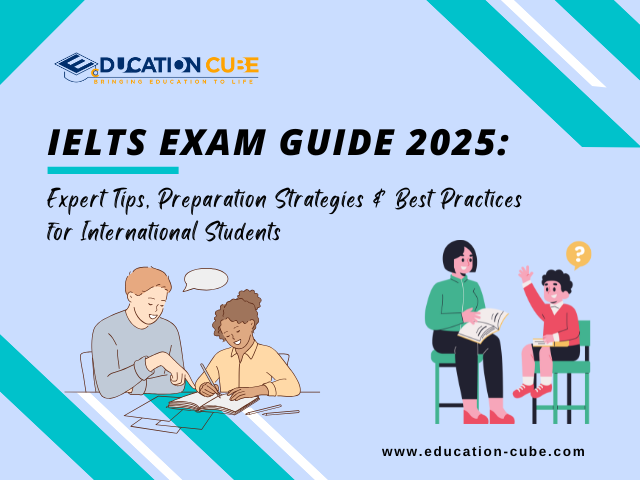
A Comprehensive Guide to Writing a Letter of Intent for Higher Education
In today’s competitive global higher education landscape, a Letter of Intent (LOI) has become an essential document for international students applying to universities worldwide. Beyond transcripts and test scores, the LOI offers admissions committees a nuanced understanding of an applicant’s motivations, academic aspirations, and alignment with the chosen program. This article provides a comprehensive and professional overview of the Letter of Intent (LOI)—its significance, structure, and best practices—to help international students craft compelling letters that enhance their applications.
1. Introduction to the Letter of Intent (LOI)
A Letter of Intent (LOI) in university admissions is a formal document where applicants express their genuine interest in a specific academic program and institution. It serves as a declaration of purpose, outlining the student’s educational background, reasons for selecting the program, and their academic and professional goals.
Why does the LOI matter for international students in 2025 and beyond?
With increasing selectivity in admissions and growing numbers of qualified applicants, universities seek more than just quantitative data. The LOI provides a qualitative insight into an applicant’s clarity of purpose and fit with the institution’s values and offerings. Moreover, for international students, a well-crafted Letter of Intent (LOI) can also support visa applications by demonstrating genuine intent to study.
2. Purpose of the LOI in University Admissions
The LOI serves multiple critical functions:
- Demonstrates Motivation and Clarity: It reflects your sincere interest in the program and your understanding of what it entails.
- Shows Alignment: It articulates how your academic background and career aspirations align with the university’s curriculum, faculty expertise, and research opportunities.
- Supports Admission Decisions: In highly competitive programs, the Letter of Intent (LOI) helps admissions committees differentiate between candidates with similar academic credentials by providing a personal narrative that highlights unique qualities and strengths.
3. When Is a Letter of Intent Required?
While not universally mandatory, the LOI is often requested in the following contexts:
- Graduate and Postgraduate Programs: Master’s degrees, MBA, and PhD applications often require a Letter of Intent (LOI) to assess academic intent.
- Research and Professional Programs: Those involving internships, practicums, or research components are especially relevant.
- Country-Specific Requirements:
- Canada: Widely used for college and university applications.
- USA & UK: Often requested for research-intensive or non-traditional entry routes.
- Australia: Commonly submitted alongside Genuine Temporary Entrant (GTE) statements for visa evaluation.
Applicants should always verify the specific requirements of each institution and country.
4. Key Components of a Strong LOI
A well-structured LOI typically includes:
- Self-Introduction and Academic Intent: Briefly introduce yourself and state your purpose.
- Academic Background and Achievements: Highlight relevant qualifications, projects, or experiences.
- Why This Program and University: Explain your reasons for choosing the particular institution and course.
- Career Goals and Future Alignment: Describe your short- and long-term objectives and how the program supports them.
- Conclusion and Expression of Commitment: Reaffirm your interest and dedication to academic excellence.
5. LOI vs SOP vs Cover Letter: Know the Difference
| Document | Tone & Structure | Purpose | Typical Use Cases |
| Letter of Intent (LOI) | Formal, concise, focused on academic intent | Declare intent and alignment | Graduate admissions, visa applications |
| Statement of Purpose (SOP) | Narrative, reflective, detailed | Share your academic journey and motivations | US/UK graduate admissions |
| Cover Letter | Professional, job application tone | Introduce candidacy for employment | Job or internship applications |
Understanding these distinctions ensures you submit the proper document tailored to each application.
6. Tips for Writing an Effective LOI
- Be Concise and Structured: Present your points clearly and logically.
- Personalize Each Letter: Tailor your Letter of Intent (LOI) to the specific program and university you are applying to.
- Avoid Generic Language: Make your letter unique; do not replicate your resume.
- Maintain Professionalism: Use formal language with genuine enthusiasm.
7. Common Mistakes to Avoid
- Using the Same LOI for Multiple Applications: This suggests a lack of genuine interest in the application.
- Overly Emotional or Informal Tone: Maintain a professional and objective tone in the letter.
- Focusing Excessively on the University: Instead, emphasize how the university’s offerings align with your goals.
- Repeating Resume Content: The LOI should complement, not duplicate, your CV.
8. Sample LOI Structure
[Your Name]
[Your Address]
[City, State, Zip Code]
[Email Address]
[Phone Number]
[Date]
Admissions Office
[University Name]
[University Address]
[City, State, Zip Code]
Dear Admissions Committee,
I am writing to express my sincere interest in applying for the Bachelor of Science program in Computer Science at [University Name]. As an international student from [Your Country], I am eager to pursue my undergraduate studies at your esteemed institution, which is renowned for its innovative curriculum and outstanding faculty.
Throughout my high school education, I have developed a strong passion for technology and programming, demonstrated by my participation in coding competitions and completion of several online courses in software development. I am particularly drawn to [University Name] because of its emphasis on practical learning and research opportunities, which align perfectly with my career goal of becoming a software engineer specializing in artificial intelligence.
Studying at [University Name] will provide me with the knowledge, skills, and global perspective necessary to excel in the rapidly evolving tech industry. Moreover, I am excited about the prospect of contributing to the university community through student clubs and collaborative projects.
Thank you for considering my application. I am looking forward to the opportunity to discuss further how I can contribute to and benefit from the academic environment at [University Name].
Sincerely,
[Your Name]
9. How Education-Cube Consultants Can Help
- Professional education consultants offer invaluable support by:
- Providing personalized guidance to articulate your academic goals clearly.
- Refining structure, tone, and language for maximum impact.
- Ensuring compliance with global admission standards and expectations.
- Delivering plagiarism-free, authentic documents that reflect your unique profile.
10. Conclusion:
A Letter of Intent is much more than a formality; it is a strategic tool that creates a compelling first impression, reinforces your academic seriousness, supports visa applications, and distinguishes you from other applicants. Investing time in crafting a thoughtful and authentic Letter of Intent (LOI) can significantly enhance your chances of admission and smooth your path to success in international education.
FAQs:
Q1: What is the primary purpose of a Letter of Intent in university admissions?
It demonstrates your genuine interest in the program, aligns you with the institution, and supports admission and visa decisions.
Q2: How is a Letter of Intent different from a Statement of Purpose?
An LOI is formal and concise, focusing on intent and alignment, while an SOP is more narrative and reflective, detailing your academic journey and motivations.
Q3: When should I write a Letter of Intent?
Typically for graduate/postgraduate programs, research-intensive courses, and when required by specific countries or universities.
Q4: What is the significance of a Letter of Intent?
A Letter of Intent holds significant importance, as it serves as a formal declaration of intent in various contexts, including business negotiations, job applications, and academic pursuits. It helps establish initial terms, expectations, and commitment between parties before finalizing a formal agreement or contract.
Q5: Can education consultants help me with my LOI?
Yes, professional consultants can help tailor your LOI to highlight your strengths and meet admission standards
 Software Developer: Powering the Digital World Through Innovation
Software Developer: Powering the Digital World Through Innovation
 Global Pharmacy Programs: Elevate Your Career with World-Class Education and Practical Exposure
Global Pharmacy Programs: Elevate Your Career with World-Class Education and Practical Exposure
 Artificial Intelligence (AI) and Machine Learning (ML) Careers: Building the Future of Innovation
Artificial Intelligence (AI) and Machine Learning (ML) Careers: Building the Future of Innovation
 Beyond Rankings: How to Choose the Right Country and University for Higher Studies
Beyond Rankings: How to Choose the Right Country and University for Higher Studies
 Study Cloud Computing Abroad: Destinations, Courses, Careers & Trends for 2025
Study Cloud Computing Abroad: Destinations, Courses, Careers & Trends for 2025
 Choosing the Right Stream After Class 10: A Comprehensive Guide for Students
Choosing the Right Stream After Class 10: A Comprehensive Guide for Students
 IELTS Exam Guide 2025: Expert Tips, Preparation Strategies & Best Practices for International Students
IELTS Exam Guide 2025: Expert Tips, Preparation Strategies & Best Practices for International Students
 Study in France: A Comprehensive Guide for International Students
Study in France: A Comprehensive Guide for International Students
 International Relations & Political Science: Studying Global Affairs Abroad
International Relations & Political Science: Studying Global Affairs Abroad
00 Comments
Leave a Comment